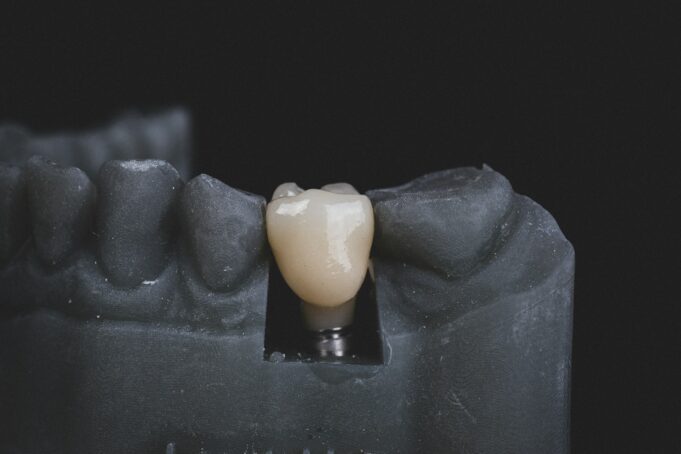Seeking dental treatment abroad has become an increasingly popular trend for individuals looking to save money or escape long waiting times for procedures. Known as “dental tourism,” this practice offers alluring promises of affordable dental care, quick service, and even the opportunity to combine dental visits with leisurely vacations. However, while the financial benefits and perceived convenience may be tempting, there is a growing awareness of the hidden dangers that can arise from leaving the UK to pursue treatment in another country. Below, we will explore some of the most critical risks associated with this practice.
Lack of Proper Regulation
One of the most pressing concerns when it comes to seeking dental treatment abroad is the lack of stringent regulations governing dental practices in some countries. The UK’s dental industry is rigorously monitored by institutions such as the General Dental Council (GDC), which enforces high standards of care, hygiene, and ethical conduct. Unfortunately, not all countries have such robust regulatory frameworks. This means that the quality of care patients receive abroad can be highly variable and, at times, subpar.
Unregulated clinics may cut corners to keep costs low, using inferior materials, outdated equipment, or untrained personnel. Even in reputable clinics, local regulations may differ significantly from those in the UK, potentially resulting in practices that fall below the standards UK patients are accustomed to. Consequently, patients may unknowingly expose themselves to higher risks of complications, poor outcomes, or even irreversible damage to their health.
Communication Barriers
Effective communication between a patient and their dentist is essential for a successful treatment process. However, when seeking dental treatment abroad, language barriers can complicate this critical interaction. Miscommunications may occur regarding treatment plans, costs, or expected outcomes. If a dentist and patient cannot fully understand each other, it increases the likelihood of errors or misunderstandings that could negatively affect the treatment’s success.
Additionally, subtle nuances in medical terminology may be lost in translation, leading to confusion or misinterpretations. For example, patients may not fully comprehend the risks, post-treatment requirements, or the nature of procedures being performed. This lack of clarity can turn minor issues into significant problems, leaving patients frustrated and uninformed.
Limited Continuity of Care
Dental treatments often require follow-up appointments to monitor progress, address any complications, and provide necessary adjustments. When a patient opts for treatment abroad, the continuity of care can be severely compromised. Returning to the UK after undergoing procedures abroad makes it challenging—or even impossible—to receive timely and appropriate aftercare from the original dentist.
Without adequate follow-up care, untreated complications may worsen over time, leading to increased pain, further health issues, and additional costs for corrective treatment. UK-based dentists might also hesitate to intervene in cases where treatment has already been partially or poorly completed by a foreign clinic, adding another layer of difficulty for patients seeking resolution after returning home.
Risk of Infection and Hygiene Standards
One of the most concerning risks associated with dental treatment abroad is the potential for inadequate hygiene and infection control. While many overseas dental clinics maintain high standards of cleanliness, others may not adhere to the same strict protocols followed in the UK. Poor sterilization practices can expose patients to harmful bacteria, viruses, and other pathogens, increasing the risk of infections and diseases.
For example, cross-contamination between patients is a serious concern in clinics that do not prioritize proper sanitation measures. Without thorough sterilization of tools, surfaces, and equipment, the likelihood of contracting infections such as Hepatitis B, Hepatitis C, or even HIV dramatically increases. These risks make it imperative for patients to research the clinic’s hygiene protocols before agreeing to treatment.
Hidden Costs and Financial Risks
While the initial costs of dental treatment abroad may appear significantly lower than in the UK, hidden expenses can quickly add up, negating any financial advantages. Travel expenses, accommodation, and the cost of taking time off work can all contribute to the overall price tag. Additionally, unforeseen complications or the need for corrective procedures can lead to further expenses, both abroad and upon returning to the UK.
It is important to note that dental treatments performed abroad are often not covered by UK insurance policies or the NHS, leaving patients to bear the full financial burden of follow-up care. When things go wrong, patients may find themselves spending far more than they initially anticipated, turning what seemed like a cost-saving solution into a financial nightmare.
Differences in Legal Protections
When receiving dental treatment in the UK, patients are safeguarded by robust legal frameworks that provide avenues for recourse in cases of negligence or malpractice. Should something go wrong, patients have access to organizations like the GDC and can seek legal action within a familiar and supportive system.
However, pursuing legal action against a foreign dentist or clinic can be exceedingly difficult. Different countries have varying laws and regulations regarding medical malpractice, and navigating an unfamiliar legal system can be daunting, expensive, and time-consuming. Language barriers and differences in legal procedures can also complicate the process of seeking justice. For many patients, the lack of legal protections abroad leaves them feeling powerless if complications arise.
Quality Assurance in Materials and Procedures
The materials used in dental procedures, such as fillings, crowns, and implants, play a crucial role in the treatment’s effectiveness and longevity. Unfortunately, the quality of materials used in some foreign clinics may not meet the standards expected in the UK. Low-quality materials may fail prematurely, leading to further dental issues and the need for corrective work.
Similarly, the expertise and training of dental professionals abroad can vary widely. While many dentists in other countries are highly skilled, others may not possess the same level of education or experience required of UK dentists. This discrepancy can impact the precision and safety of procedures, increasing the likelihood of unsatisfactory results.
Travel-Related Health Risks
Traveling abroad for dental treatment often involves long flights or extended stays, which can pose additional health risks. For example, undergoing surgical procedures like dental implants or extractions can increase the risk of complications such as blood clots, especially during long-haul flights. Air travel shortly after surgery may exacerbate swelling, pain, or other issues, delaying recovery and leading to further discomfort.
Moreover, patients may not have ready access to emergency care if complications arise during or after their trip. Being far from home and unfamiliar with local healthcare systems can make it challenging to address urgent medical needs, potentially putting patients’ health in jeopardy.
Ethical Concerns and Exploitation
Another hidden danger of seeking dental treatment abroad is the potential for unethical practices. Some clinics may prioritize profit over patient care, using aggressive marketing tactics to attract international clients while neglecting their overall well-being. Patients may be pressured into undergoing unnecessary procedures or accepting treatments that are not suitable for their individual needs.
Clinics that focus on volume rather than quality may rush procedures to accommodate more patients, compromising the thoroughness and safety of care. These practices can not only harm patients physically but also leave them feeling exploited and dissatisfied with their experience.
Weighing the Risks Against the Rewards
While dental tourism may seem like an appealing solution for addressing dental needs at a lower cost, it is crucial for patients to carefully weigh the risks against the potential rewards. Thorough research, including checking reviews, verifying qualifications, and understanding local regulations, is essential for minimizing risks. However, even with due diligence, the hidden dangers of leaving the UK for dental treatment abroad can have lasting consequences on a patient’s health.













